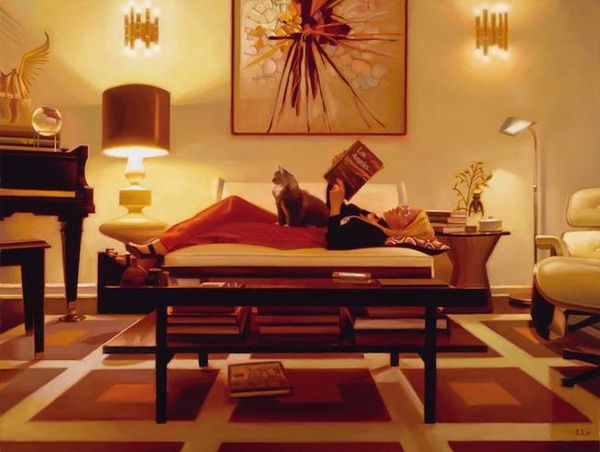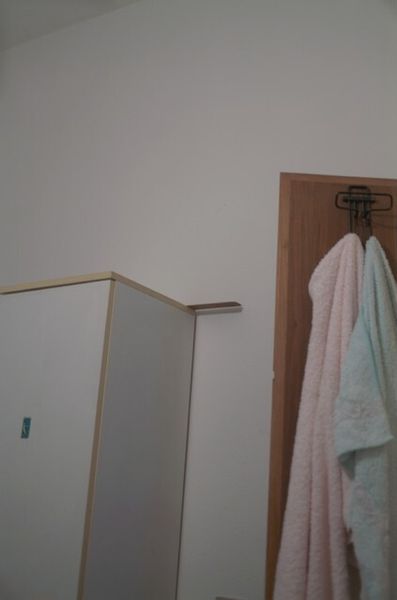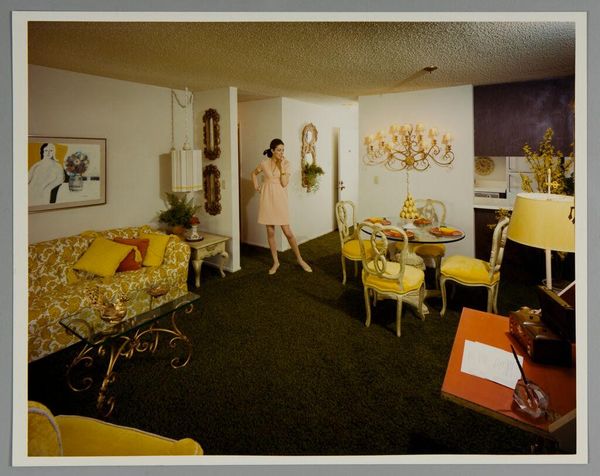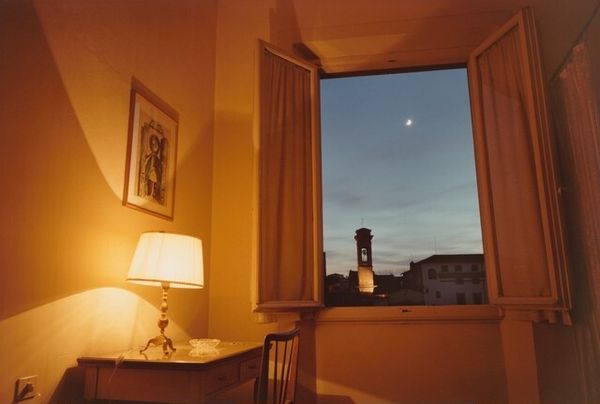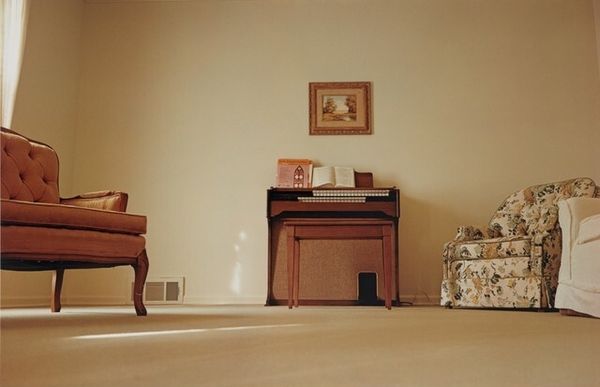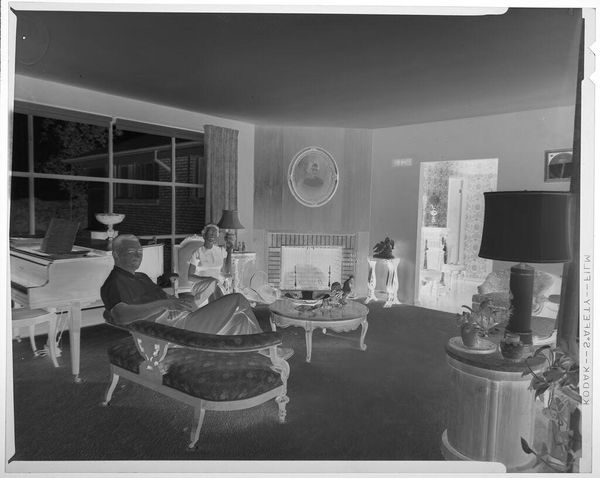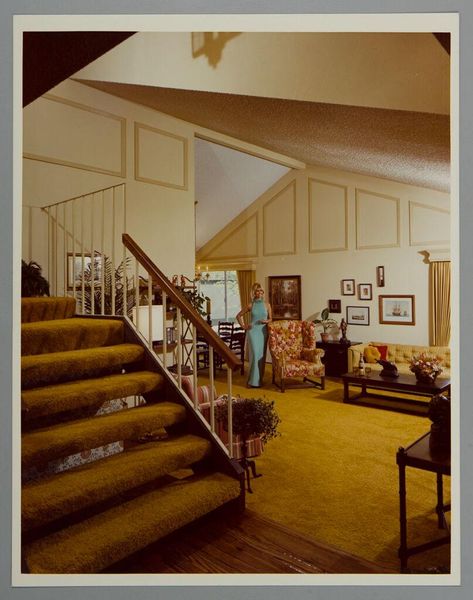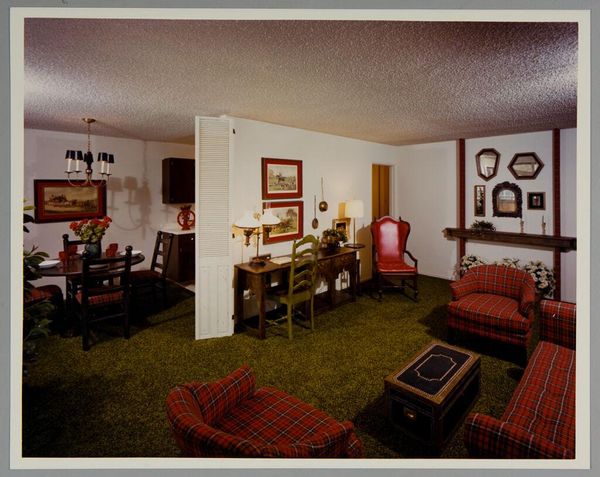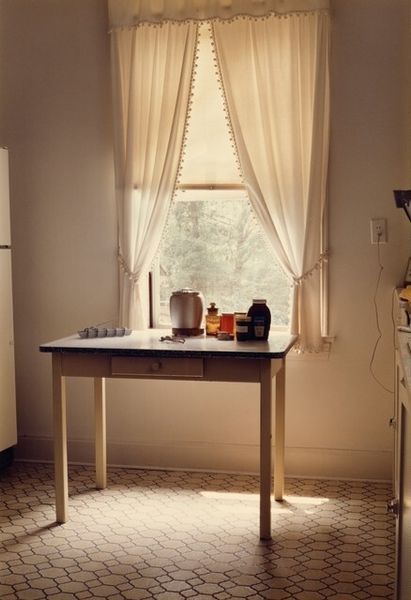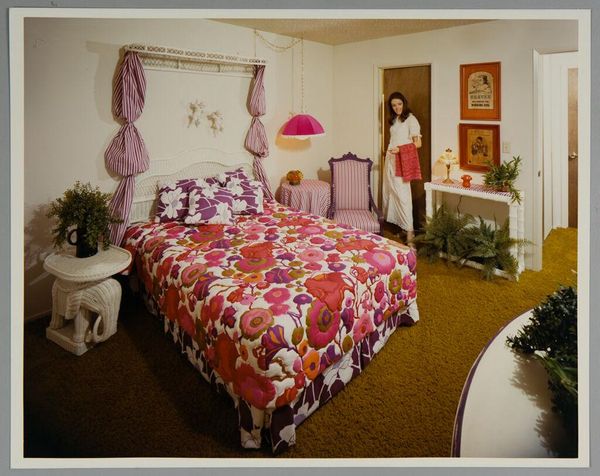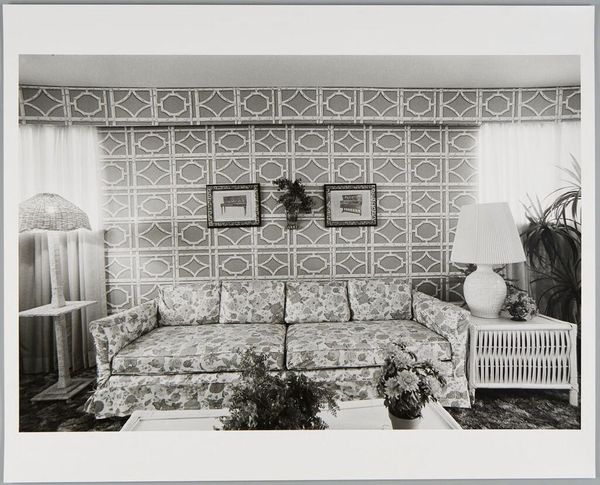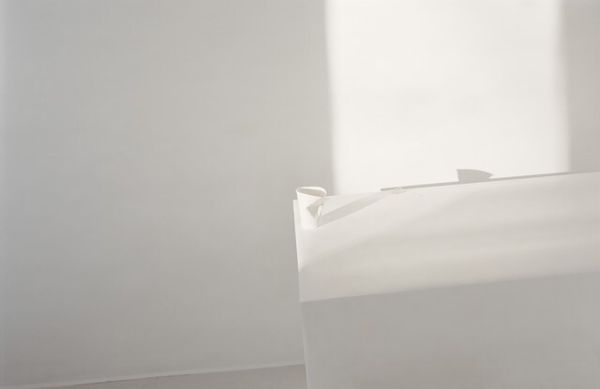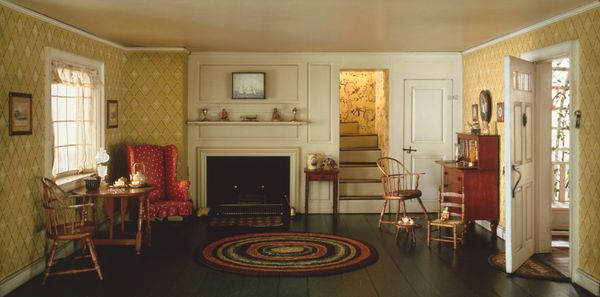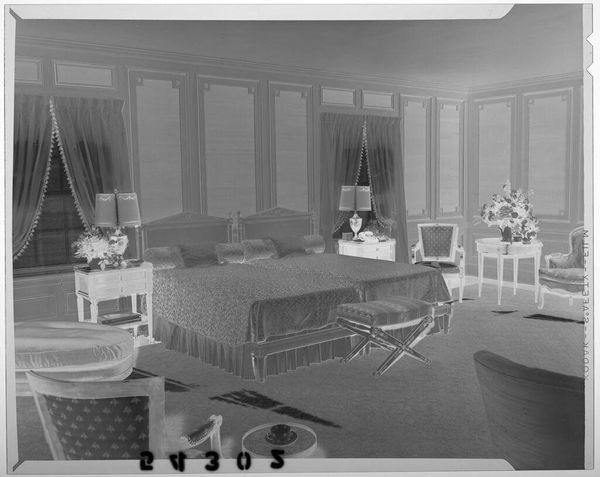
photography
#
contemporary
#
sculpture
#
landscape
#
photography
Dimensions: dimensions variable
Copyright: National Gallery of Art: CC0 1.0
Curator: This is "Watergate" by Victor Burgin, created in 2000. It’s a photograph, seemingly of a nondescript hotel room, yet pregnant with suggestion. Editor: It hits me with this weird sense of melancholy, doesn’t it? That grey light filtering in, that utterly forgettable decor. It's the visual equivalent of elevator music, designed for a kind of… anonymous existing. Curator: Burgin's work often grapples with the hidden layers beneath seemingly ordinary spaces, delving into the socio-political currents that shape our perception of reality. He invites us to see beyond the surface. Editor: Absolutely! It's more than just a snapshot. Notice the painting above the couch – is that supposed to be a grandiose waterfall or something equally... dramatic? It's like a bad imitation of grandeur amidst the utter lack of it in the actual space, or the promise of a "view" obstructed by a grim cloudy sky. Curator: That supposed painting of a "waterfall," or should I say landscape, may as well not exist. It feels as much a cliché as the tired furniture. The "Watergate" title and visual components could point to many narratives surrounding the political scandal, playing on themes of power, surveillance, and hidden agendas. It makes you consider where are we, in relation to the scene. It implicates the viewer in ways both unnerving and enlightening. Editor: Exactly. We’re placed *outside*, looking *in*, observing, but strangely detached. Maybe "Watergate" is also hinting at information being obscured, something bubbling beneath the surface, in the murky water of its history. The ordinary details practically beg for suspicion. Are we peering into a stage set, or a site where deals are cut? Is this space more than just four walls and generic amenities? Curator: I agree completely. There is something unsettling and isolating about this particular space, emphasized by the lack of visible human presence but heavy with suggestions. Editor: Well, thanks to Burgin I’ll probably think twice next time I'm stuck in a bland hotel room staring at a sad view. You know, history and paranoia can make even a mini-bar seem like a geopolitical statement. Curator: It shows the value in re-interpreting these ubiquitous architectural sites and bringing to bear questions of what their actual function really is and whom these spaces intend to target.
Comments
No comments
Be the first to comment and join the conversation on the ultimate creative platform.
